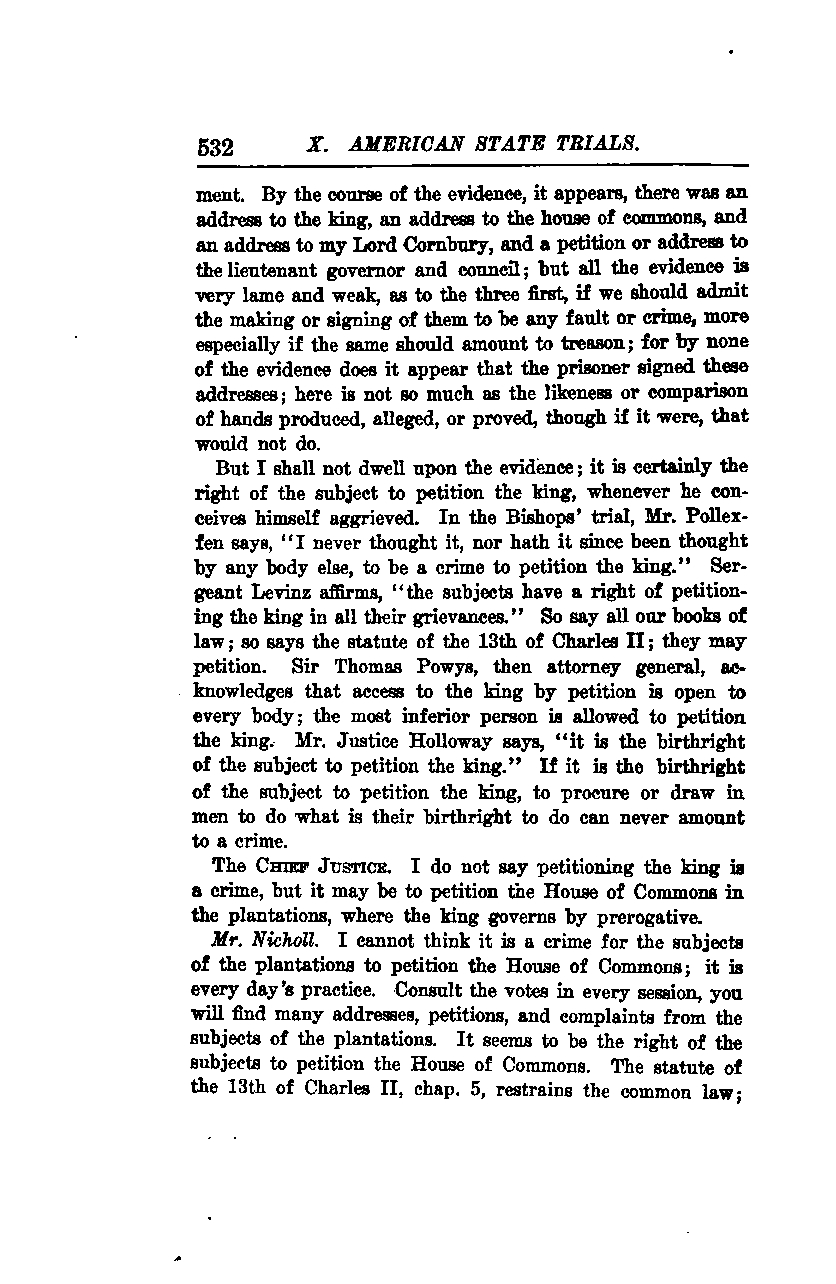
Here is the translated text as follows:
532 X. AMERICAN STATE TRIALS.
By the course of the evidence, it appears there was an address to the king, an address to the House of Commons, an address to my Lord Cornbury, and a petition or address to the lieutenant governor and council. However, all the evidence is very lame and weak, particularly concerning the first three addresses. Even if we were to admit that making or signing them constitutes any fault or crime, more especially if it were to amount to treason, none of the evidence indicates that the prisoner signed these addresses. There is not even a likeness or comparison of hands produced, alleged, or proved, though if there were, that would not suffice.
I shall not dwell upon the evidence; it is certainly the right of the subject to petition the king whenever he conceives himself aggrieved. In the Bishops' trial, Mr. Pollexfen stated, "I never thought it, nor has it since been thought by anybody else, to be a crime to petition the king." Sergeant Levinz affirmed, "The subjects have a right of petitioning the king in all their grievances." This is supported by all our books of law and the statute of the 18th of Charles II, which affirm that subjects may petition. Sir Thomas Powys, then Attorney General, acknowledged that access to the king by petition is open to everybody; even the most inferior person is allowed to petition the king. Mr. Justice Holloway stated, "It is the birthright of the subject to petition the king." If it is the birthright of the subject to petition the king, then to procure or draw in men to do what is their birthright can never amount to a crime.
**The Chief Justice:** I do not say petitioning the king is a crime, but it may be a crime to petition the House of Commons in the plantations, where the king governs by prerogative.
**Mr. Nicholl:** I cannot think it is a crime for the subjects of the plantations to petition the House of Commons; it is an everyday practice. Consult the votes in every session, and you will find many addresses, petitions, and complaints from the subjects of the plantations. It seems to be the right of the subjects to petition the House of Commons. The statute of the 18th of Charles II, chapter 5, restrains the common law.
---